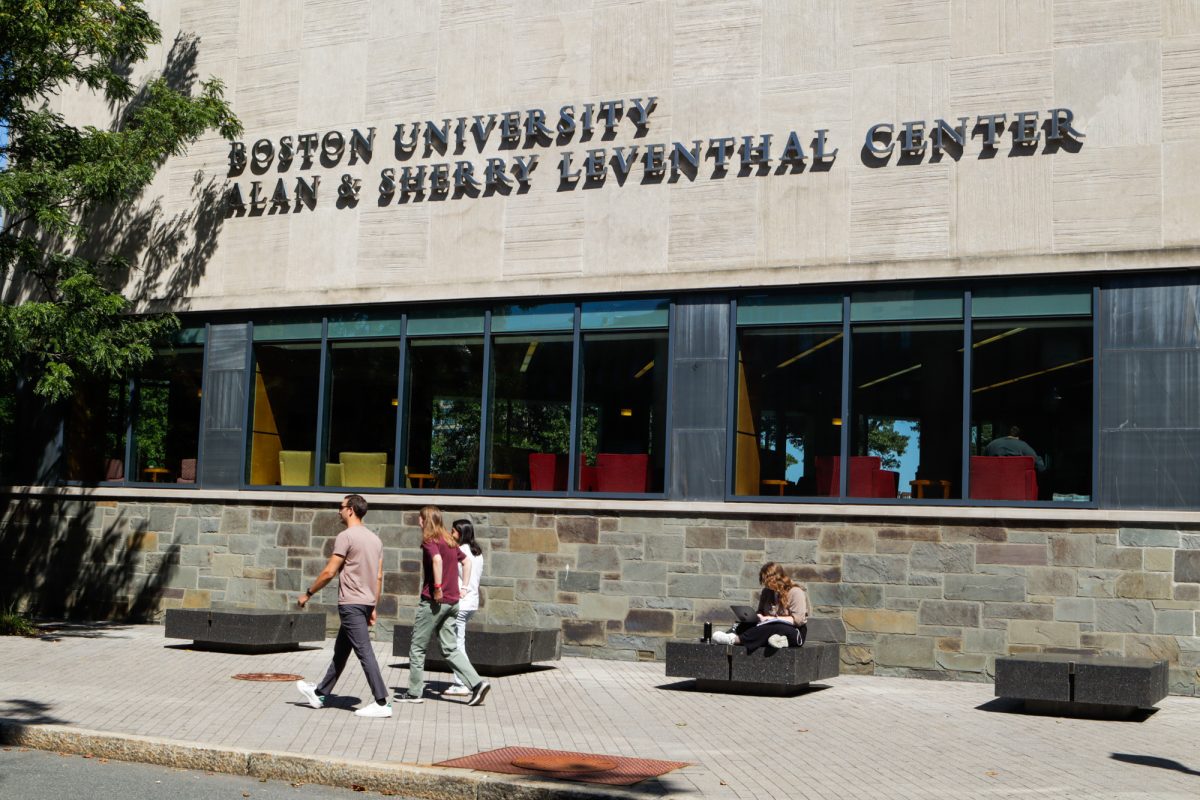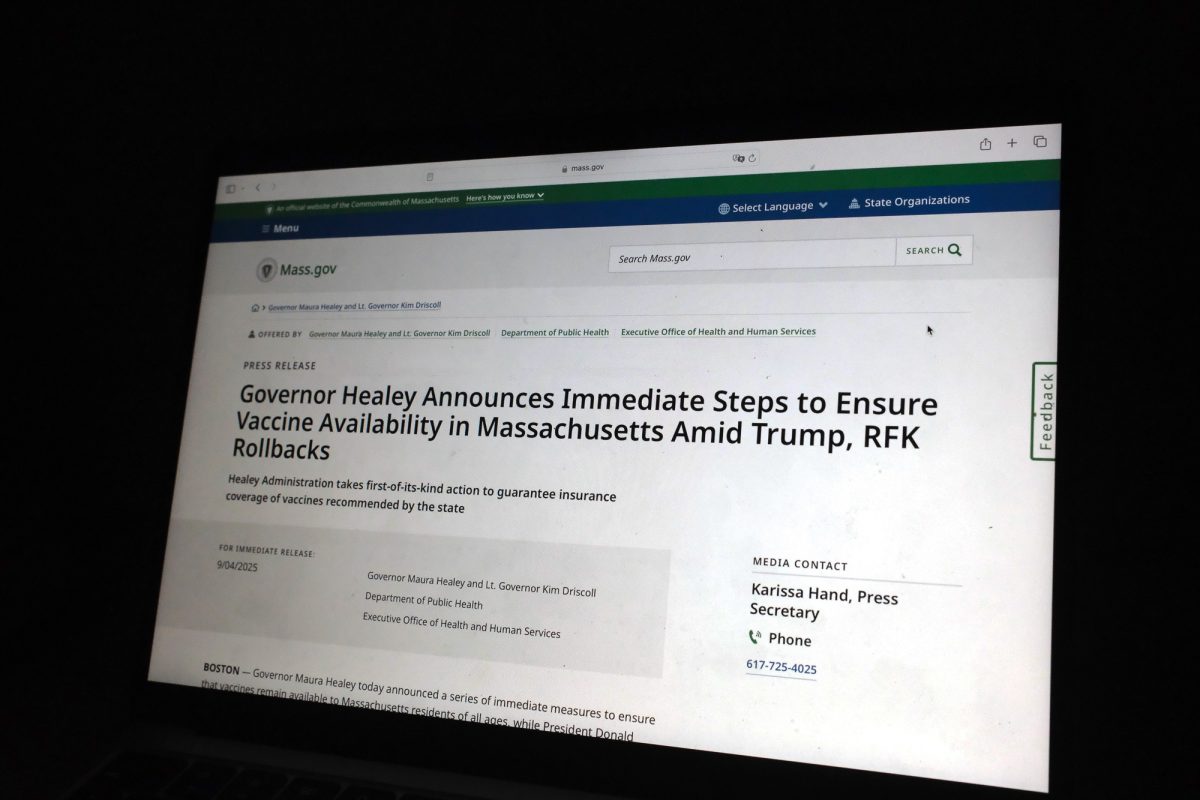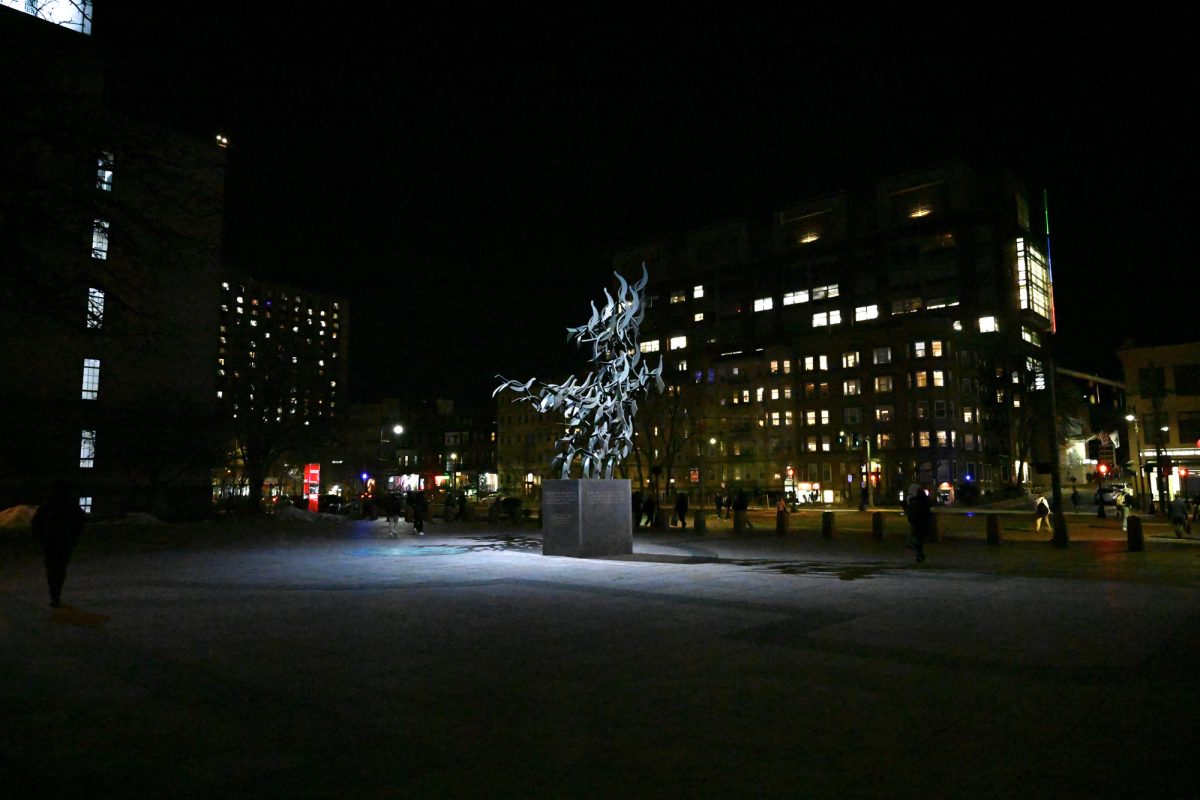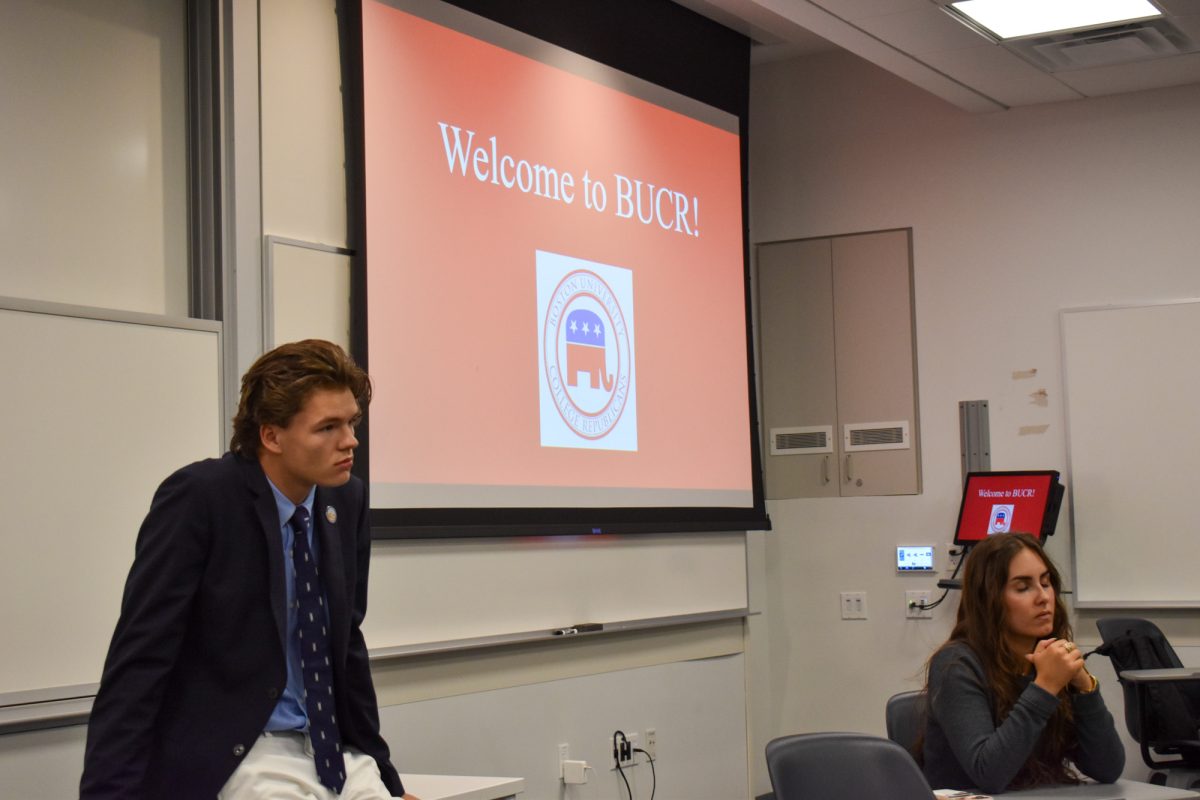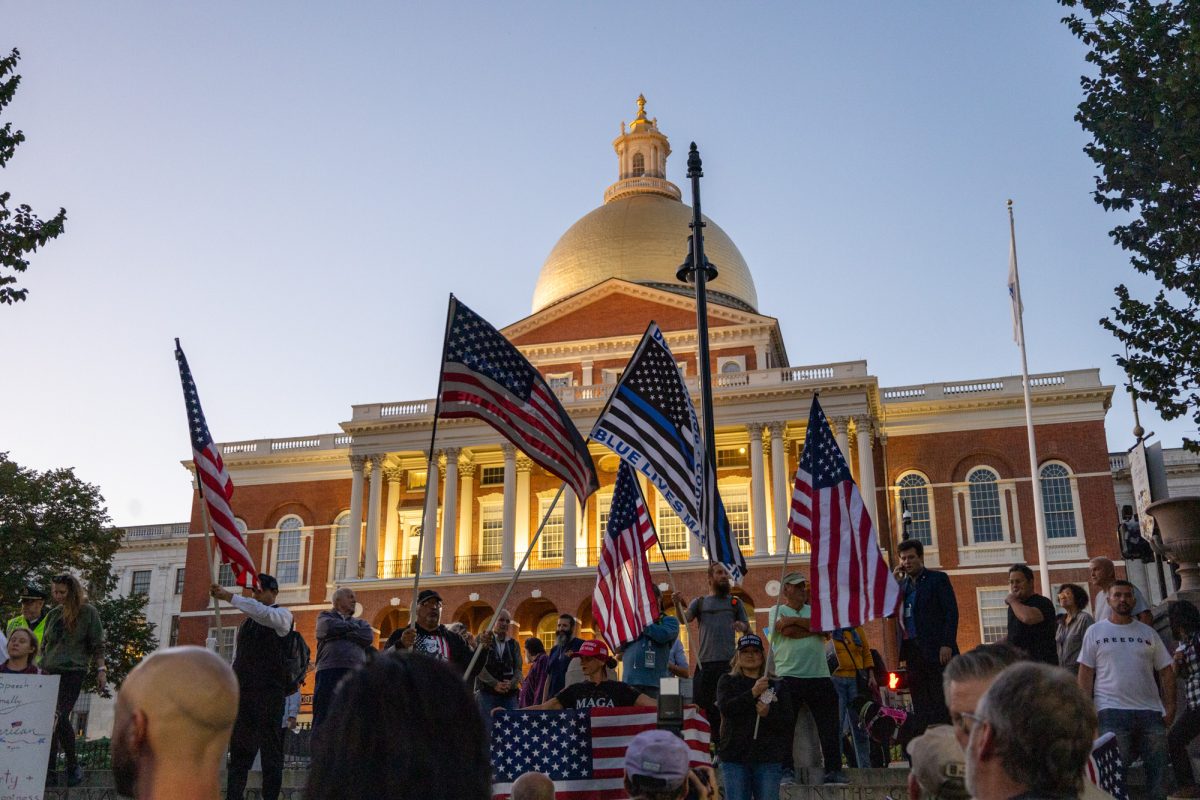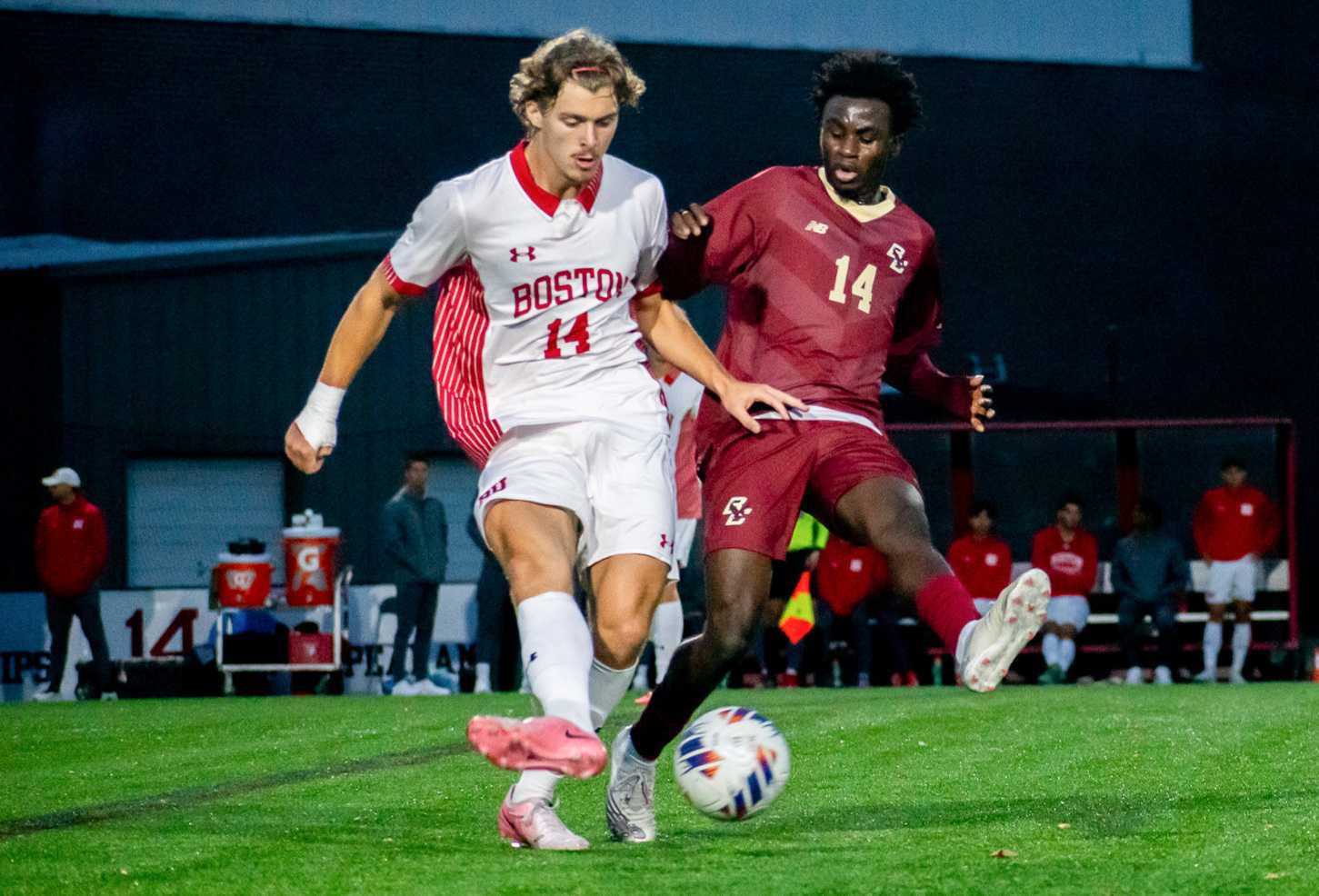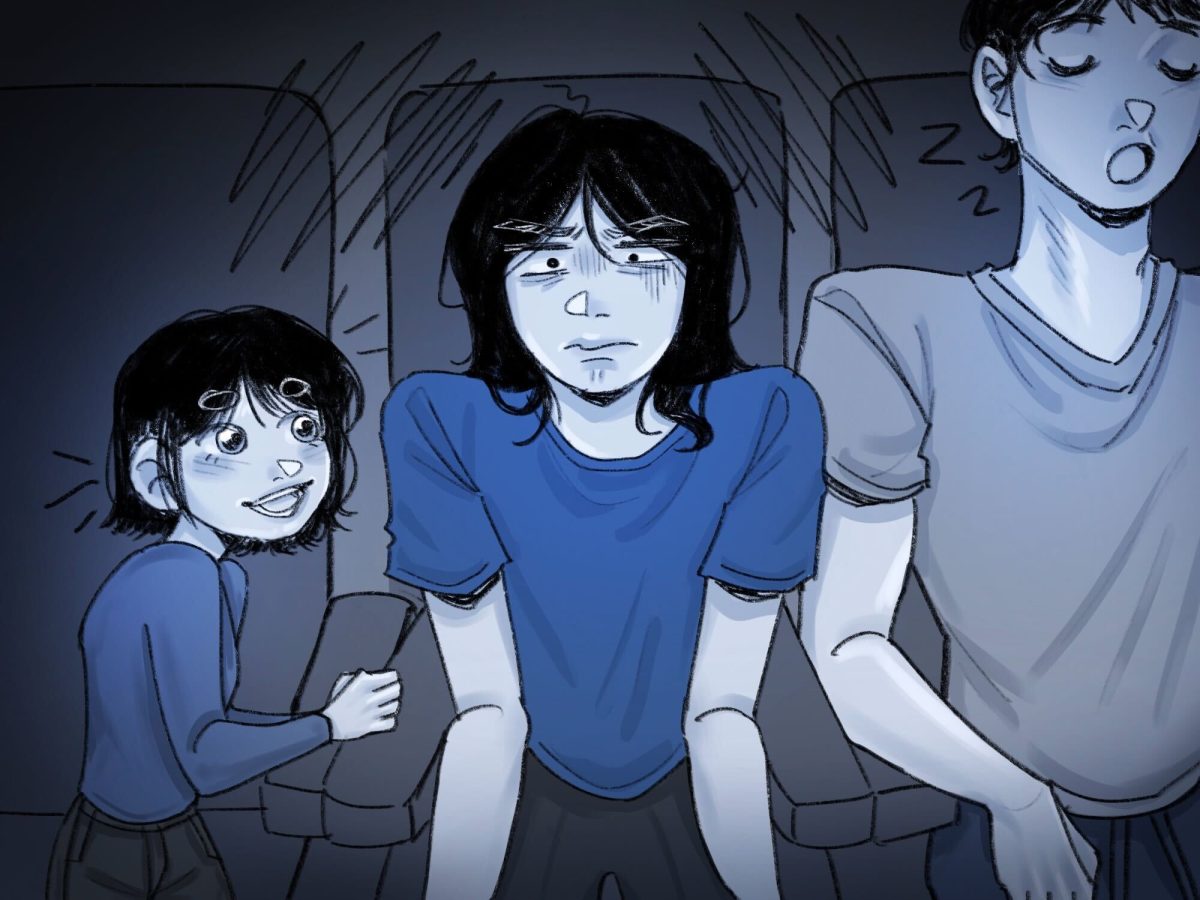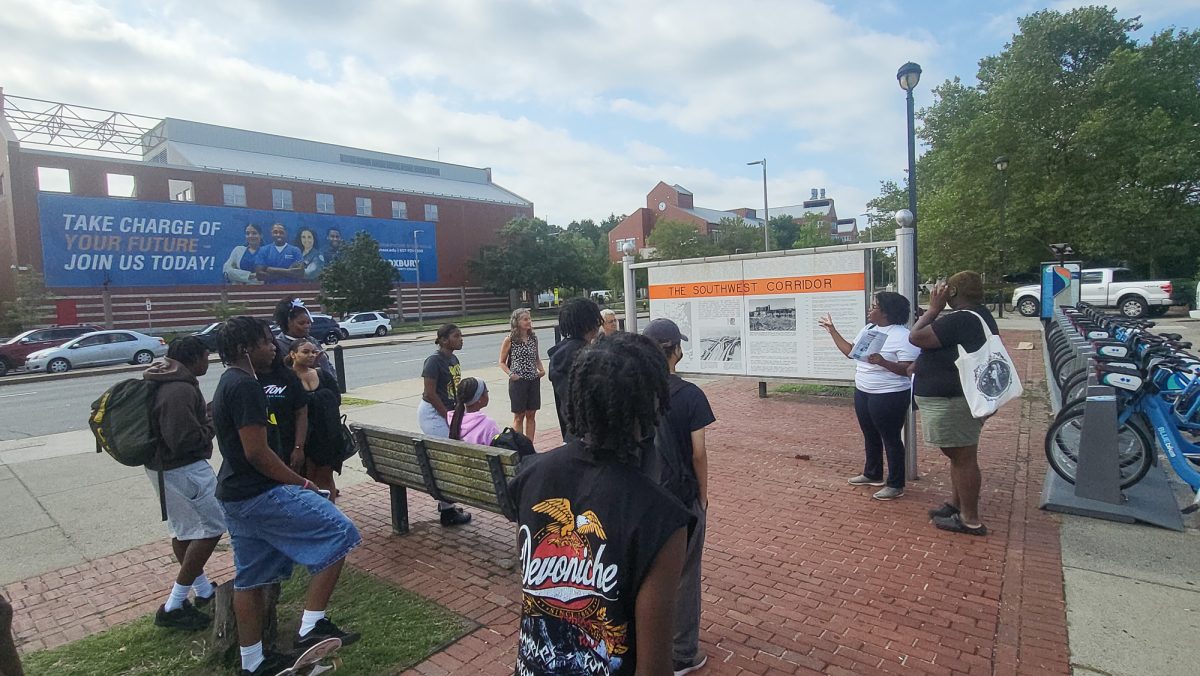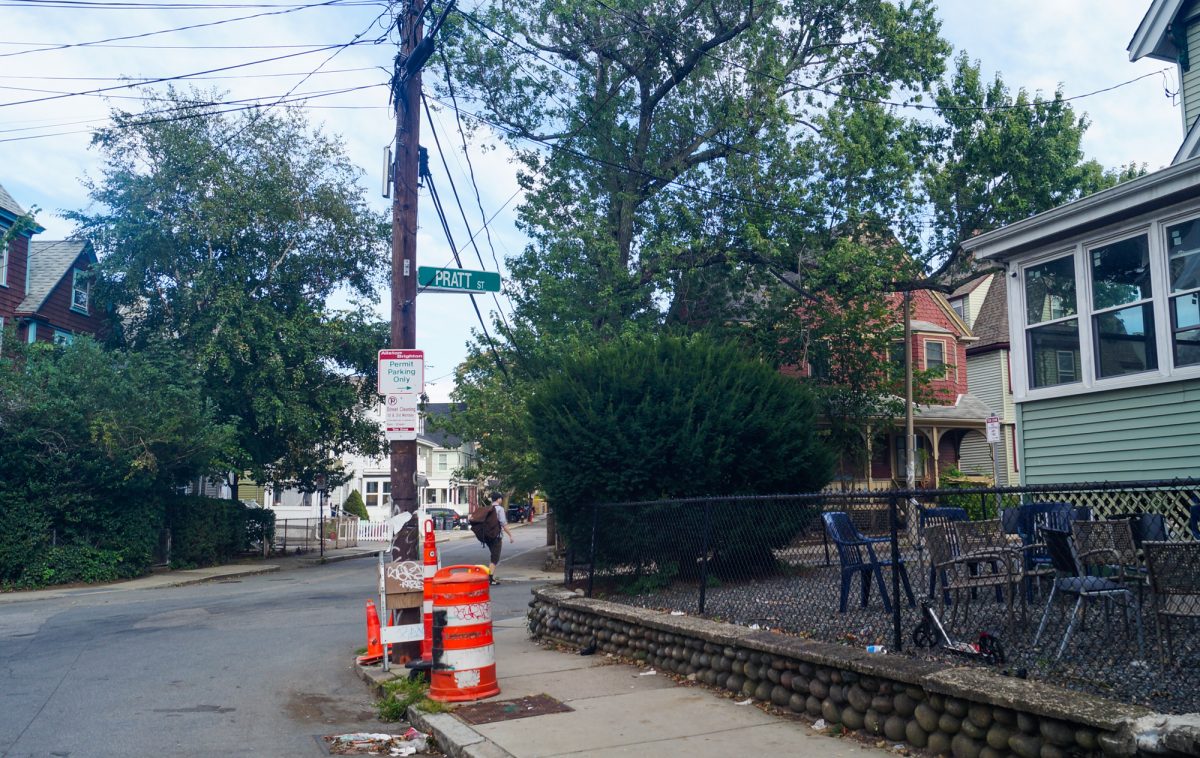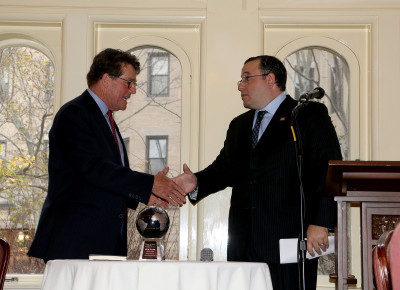
The Boston University College of Communication honored The Washington Post’s Tehran Bureau Chief Jason Rezaian, currently imprisoned by Iranian authorities, with the 2015 Hugo Shong Reporting on Asia Award Tuesday. Ali Rezaian accepted the award on behalf of his brother from COM Dean Thomas Fiedler following a luncheon at the BU Castle.
Hugo Shong, a BU alumnus and namesake of the award, and Douglas Jehl, foreign editor at the Post, attended the gathering with approximately 30 other BU students and faculty members to honor Rezaian’s work on the 505th day of his imprisonment.
On behalf of his brother Jason, Ali Rezaian said his brother would appreciate the award’s acknowledgment of the difficult work reporters do in Asia and said he hopes Jason would be able to accept his future awards in person.
“[Jason] is held in prison for crimes he didn’t commit, convicted on charges that had not been made public and sentenced for terms they have not announced,” Rezaian said at the reception. “While journalists investigate an important truth, the fact is, in many parts of the world, this is seen as an unacceptable threat to governments and other power centers.”
In July 2014, Rezaian and his wife Yeganeh Salehi were arrested at their home in Tehran, charged with espionage and later imprisoned. Salehi was imprisoned for 72 days and released under bail, Ali Rezaian said in his remarks. Since his arrest, Jason Rezaian has been detained longer than any other American journalist in Iran, his brother said.
Rezaian said it has been an unwanted yet incredible journey to work with a “clan of journalists” from around the world to fight for his brother’s freedom over the past 17 months.
“Recognition of this situation via this award is one of the things that keeps [Jason Rezaian] going and gives me strength to continue the fight for his release,” Rezaian said during his speech.
The Hugo Shong Award, established in 2005, gives recognition to an individual who has displayed the highest standards of international journalism in covering important matters in Asia, COM’s website stated. This year, the award honors Rezaian for his courage in the face of persecution, Fiedler said.
Previous Hugo Shong winners include William Wan of The Washington Post, Jeremy Page of The Wall Street Journal and David Barboza of The New York Times, among others, the website stated.
Dehl said Rezaian’s work highlighted “voices of ordinary Iranians” aside from the unfolding relationship between United States and Iran. However, “the kind of on-the-ground reporting that very few people have been able to deliver from Iran has been silenced for the last year and a half in the pages of The Washington Post” since Rezaian’s imprisonment, Dehl said in his speech.
Although the U.S. government has made many public statements to convey the outrage of Rezaian’s imprisonment, Dehl, the Post’s liaison to the Rezaian family and to the U.S. State Department, said those statements are not enough in attempts to release Rezaian.
“Whatever [U.S. government officials] are doing isn’t working,” Dehl said during the question-and-answer session. “There is more that can and should be done from the highest levels of the U.S. government to convey to Iran that there must be consequences for this kind of activity … that this kind of activity won’t be ignored.”
The reception also allowed attendees to sign a petition demanding Rezaian’s freedom. On Dec. 3, Ali Rezaian presented the petition to the United Nations as an effort to bring attention to his brother’s current condition, Fiedler said.
Fiedler said he encourages BU students, such as those in the BU chapter of the Society of Professional Journalists, to take part in the effort to free Rezaian.
“Maybe there is something [BU] can do to help spread the word among student groups here,” Fiedler said after the reception. “The thought that students might be able to keep the focus on this using the skills they are particularly good at, which is social media, could complement what is already happening at The Washington Post.”
Several attendees said the award shed light on a bigger question about how others can help the Post’s efforts to free Rezaian.
“It’s important whenever a certain person is detained without reason that certain measures should be taken to find out those reasons,” said Linus Liu, a sophomore in the College of Arts and Sciences. “[The reason for Rezaian’s arrest] is just not clear and it should be clear. It’s good that more people are finding out about this problem.”
Janet King, general manager and vice president of IDG Research Services, said listening to attendees’ thoughts on Rezaian’s condition was very inspiring, although determining additional concrete efforts to ease Rezaian’s release might be difficult. There’s “a lot of [things] behind the scenes going on” that the public is unaware of, she said.
“It’s unbelievable that [Jason Rezaian] can be held for such a long period of time under such a thin or nonexistent thread of evidence,” she said. “Try to put together a dedicated team between the university and The Washington Post, that could provide resources for his brother.”



